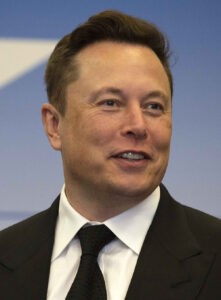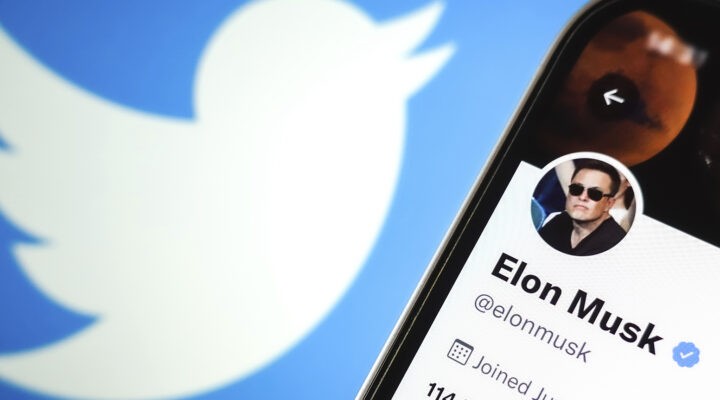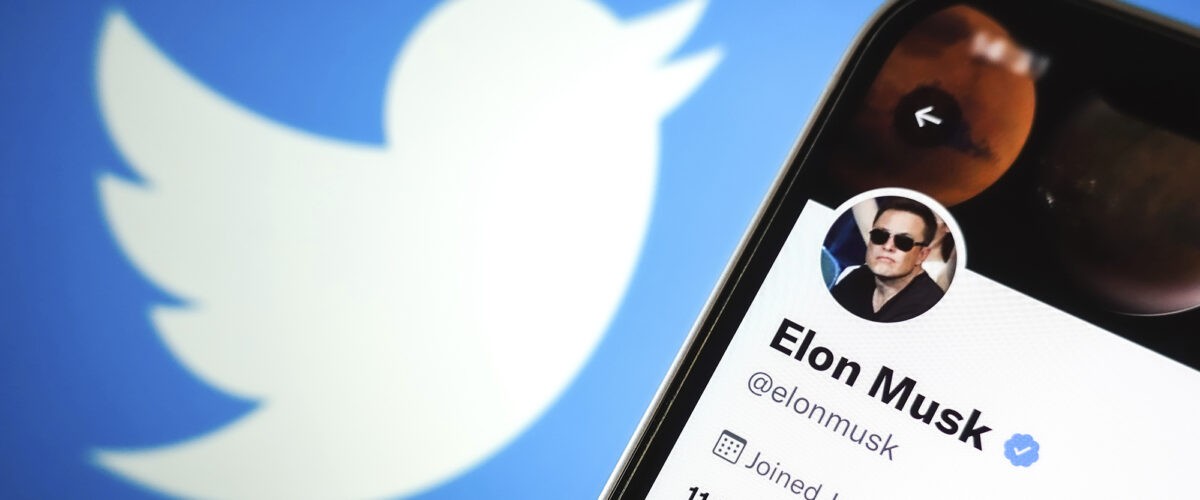Imagine if the online theological discourse that led to the rise of Donald Trump and the conservative determination to use political power and misinformation to push their agenda on others was owned by a man rich and powerful enough to buy and control it for $44 billion.
That is essentially what has happened this week as Elon Musk announced a deal to purchase Twiter and take the public company private, provoking much uncertainty on social media about how his purchase might affect how we talk about what matters most to us.
Amazon founder Jeff Bezos tweeted, “Did the Chinese government just gain a bit of leverage over the town square? My own answer to this question is probably not.”
Andrew Tarantola of Engadget speculated: “I dread the effects this sale will have, not just for Twitter itself, but the internet writ large. The destabilizing effects social media amplification has on societal and democratic norms have been well studied since the 2016 elections. What is not yet fully understood is what happens when we hand control over that mechanism to the world’s wealthiest contrarian.”
Bloomberg reported: “Twitter Inc. locked down changes to its social networking platform through Friday after accepting a $44 billion bid from billionaire Elon Musk, making it harder for employees to make unauthorized changes, according to people familiar with the matter. For now, Twitter won’t allow product updates unless they’re business-critical, said the people, who asked not to be identified because the situation is private.”

Elon Musk (Photo by Saul Martinez/Getty Images)
But despite the uncertainty among leaders and analysts in the tech world, the acclaimed TheoBro and former president of the Council on Biblical Manhood and Womanhood, Owen Strachan, confidently declared, “And just like that, with Elon Musk buying Twitter, free speech in the West is preserved. Common grace FTW.”
Why would the TheoBros brand Musk’s $44 billion purchase of Twitter as the West being won by common grace? And how might this play itself out in theological discourse moving forward?
The role of Twitter in theological discourse
Even before this week’s sale announcement, Twitter has played an outsized role in the often-contentious world of modern theological conversation. Scholars and pastors and nonprofit leaders — both progressives and conservatives — often pontificate and argue with each other on Twitter.
While the average person in the pew may not be following theology according to Twitter, some professional Christians spend hours a day on the platform. This mirrors the rest of America, where the majority of people do not use Twitter, but journalists, politicians and prominent social influencers use it heavily.
Twitter has a relatively small share of the social media market, with just 217 million active, monetizable daily users in 2021, compared to billions with Meta. Thus CNN’s Brian Fung asks: “So why, exactly, do the stakes feel so big? The answer boils down to the outsized influence of Twitter on public discourse, and the uncertainty of what happens when the world’s richest man — who revels in his unpredictability — gains singular control over that influence.”
Here are some examples of how this works:
- As COVID-19 spread throughout the world, eventually killing millions, pastor John MacArthur’s henchman Phil Johnson was bragging on Twitter about how careless Grace Community Church was being about health precautions.
- Worship leaders such as Sean Feucht used Twitter to promote worship gatherings of 100,000 people at the National Mall that would mask a Republican political rally as an evangelical worship rally.
- Then after Donald Trump was soundly defeated in the 2020 election, pastor Greg Locke was one of many evangelicals who used the platform to ramp up the rage against the media and the Democrats that led to the Jan. 6 insurrection attempt at the United States Capitol.
While some evangelicals may want to distance themselves from the MacArthurs, Feuchts and Lockes of the world these days, the reality is that hundreds of thousands of people showed up at these events, a violent overthrow of the United States government was attempted, and people died as a result of the theological discourse on Twitter.
Similarly, the rancorous debate now raging within the Southern Baptist Convention — between ultra-conservative Calvinists and basic-conservative institutionalists — mainly plays out on Twitter. Baptist News Global’s coverage on many of these issues has used Twitter threads as primary sources.
Social responsibility vs. the great replacement
One of the reasons those who lean more conservative and those who lean more liberal are having such different reactions to Musk’s purchase of Twitter has to do with how liberals and conservatives approach social responsibility.
In an interview with BNG, an expert in the tech industry who spoke on condition of anonymity explained: “For liberals, the goals are around creating a fair and equitable world for everyone, which means being especially cognizant of those who have not been represented fairly throughout history and/or who have been consistent targets of marginalization or oppression. (They) create guidelines and expectations for online content and behavior to help prevent the continuation of harm from things like racism, discrimination, misogyny.”
However, regarding conservatives, he said: “I don’t think conservatives are less concerned about societal harm. I think their perspective on societal harm is skewed by the fear of the Great Replacement. They see progressive policy and initiatives as a threat to their own well-being because ‘those minorities are trying to take our prosperity from us by force’ — i.e., affirmative action, propaganda in school books, liberal media bias, etc.” The subconscious assumption, he believes, is that, “they don’t want to work hard for it like the white people did.”
What does free speech mean?
“I hope that even my worst critics remain on Twitter,” Musk said, “because that is what free speech means.”
But what does free speech mean when it is interpreted by people with such different perspectives on social responsibility and Great Replacement Theory?
According to the First Amendment, “Congress shall make no law … abridging freedom of speech.” As the Administrative Office of the U.S. Courts explains, however, “The U.S. Supreme Court often has struggled to determine what exactly constitutes protected speech.”
“It’s not OK to say anything you want,” the tech insider explained in his interview with BNG. “Your opinion or perspective is welcome as long as you don’t cross lines into abusive speech or behavior that is likely to create a hostile environment where others feel threatened, intimidated, unwelcome. For example, if I create a Facebook group called ‘Confederate States Will Rise Again,’ I’m clearly alienating Black Americans whose ancestors experienced the horrors of slavery.”
“Social media has become this type of battleground,” he pointed out. “Conservatives have felt that this arm of the liberal machine (big tech) has treated them unfairly by preventing them from expressing themselves freely, silencing their voices on the most important platforms. They play the role of persecuted victim with freedom of speech as their god.”
“There is a thin line between free speech and abusive speech.”
Of course, when expressing yourself freely involves spreading theologies that condemn all of humanity who disagrees with your very detailed theology to eternal conscious torment, there is a thin line between free speech and abusive speech.
In addition to abusing those one disagrees with, another complexity of free speech has to do with spreading conspiracy theories. The tech insider said: “The idea that ‘free speech’ should be prioritized is generally interpreted as meaning more leniency for sharing harmful misinformation or disinformation. If I want to share my view that global elitists are conspiring to kill off a large segment of humanity by fabricating a pandemic and injecting millions with a gene-altering death jab, or that they’re intentionally setting fire to food production facilities in order to starve the population to death, then I should be free to share that and have it amplified by online algorithms. Your private business values (such as protecting society from the harm of unsubstantiated hysteria) are not as important as my right to express myself.”
Due to the power for harm that is made possible through theological discourse on social media, it is important to consider how Musk plans to change Twitter and whether or not he has demonstrated himself to be trustworthy for the job.
How Elon Musk plans to change Twitter
Some of the ways Musk has hinted he may want to change Twitter range from harmless to possibly helpful.
As the tech insider explained: “I do think the user experience will be a priority. He’s hinted at this with recent Tweets asking users if they want an edit button, talking about the importance of free speech in the public square (which is Twitter to him), and has suggested publishing Twitter’s algorithm in a public repository.”
Musk has promised to “defeat the spam bots or die trying,” and to “authenticate all real humans.”
He also likes to play the role of the objective middle, tweeting: “A social media platform’s policies are good if the most extreme 10% on left and right are equally unhappy.”
Statements like that often are made to position oneself as “above it all,” or as seeing reality in a more nuanced, objective way. But if that is where Musk is politically, then why does he seem willing to make the most extreme on the right so happy?
When the Canadian truckers set up blockades to protest vaccine mandates, Musk echoed the sentiments of Donald Trump, tweeting, “Canadian truckers rule.”
When the Canadian truckers set up blockades to protest vaccine mandates, Musk echoed the sentiments of Donald Trump, tweeting, “Canadian truckers rule.”
When Canadian Prime Minister Justin Trudeau eventually decided to cut off the funds of the protesters in order to break up the convoy, Musk compared him to Adolf Hitler.
Musk’s company Tesla also is being sued in California due to allegations that “Black and African American employees at the company’s Fremont plant are ‘segregated to the lowest levels,” accusations that Tesla claims are “unfair.”
Whatever one thinks about Musk’s tweets or the way his company is alleged to treat people, perhaps the biggest potential change to Twitter will be in the way Musk plans to monetize it.
The tech insider said, “Musk will soon own every single private data point Twitter has ever collected on its users. That’s an enormous amount of capital for someone who so many people don’t believe they can trust.”
Shoshana Zuboff, a former professor and author of The Age of Surveillance Capitalism, shares his concerns, saying Musk’s control of Twitter users’ private data “cannot be compared to anything that has ever existed.”
Musk’s control of Twitter users’ private data “cannot be compared to anything that has ever existed.”
Of course, the solution many will propose is more government oversight. But while Twitter will be required by law to follow the privacy laws currently on the books, the reality is that technology evolves faster than the government does. So whether or not Musk is trustworthy in his claims to want to protect privacy, Twitter users will have to trust him to some extent because he always will be steps ahead of an already outdated system of laws. He will have unprecedented opportunities to monetize the data he will have access to.
Perhaps harnessing that economic power is why he was willing to spend $44 billion to purchase Twitter, rather than wanting to help Owen Strachan win the West through common grace.
How religious influencers plan to respond
While there are many who either plan to leave or join Twitter due to its sale to Musk, the consensus among many religious influencers seems to be to wait and see.
Beth Allison Barr, author of The Making of Biblical Womanhood, tweeted, “Thanks y’all for confirming what I already wanted to do: stay on Twitter (see how things shake out).”
Chrissy Stroop, a scholar and leading voice for ex-evangelicals, had similar sentiments, tweeting: “I’m not outright leaving yet, and I’m putting off that decision. But I’ll probably be less engaged as we wait and see.” She later added, “For those now (understandably) bailing on Twitter or seriously considering it, my writing will continue to appear primarily in openDemocracy and Religion Dispatches for the foreseeable future. I’ll be looking for less-toxic places for online community connection as well.”
In a humorous yet pointed attempt to reach out to white progressives who are leaving Twitter, theologian and trauma soul care provider Kyle Howard tweeted: “Wait, why does it seem only white liberals/progressives are leaving Twitter? Folks, y’all have nothing to worry about, you’ll literally be the second least impacted next to white conservatives. If y’all all leave we gon’ be stuck just with y’all’s people who hate us. Don’t go!”
For those of us who decide to stay, the stories may change and the theological controversies may evolve. But the need to speak truth to power will remain, for the rich we will always have with us.

Rick Pidcock
Rick Pidcock is a 2004 graduate of Bob Jones University, with a bachelor of arts degree in Bible. He’s a freelance writer based in South Carolina and a former Clemons Fellow with BNG. He recently completed a master of arts degree in worship from Northern Seminary. He is a stay-at-home father of five children and produces music under the artist name Provoke Wonder. Follow his blog at www.rickpidcock.com.
Related articles:
BNG column sparks Thanksgiving Twitter war of words between complementarians and two female scholars
Why doesn’t Twitter ban Europe’s diaspora medical scare-monger prophets? | Opinion by Joylean Baro
Meet the TheoBros, who want you to know they’re right about everything | Analysis by Rick Pidcock


